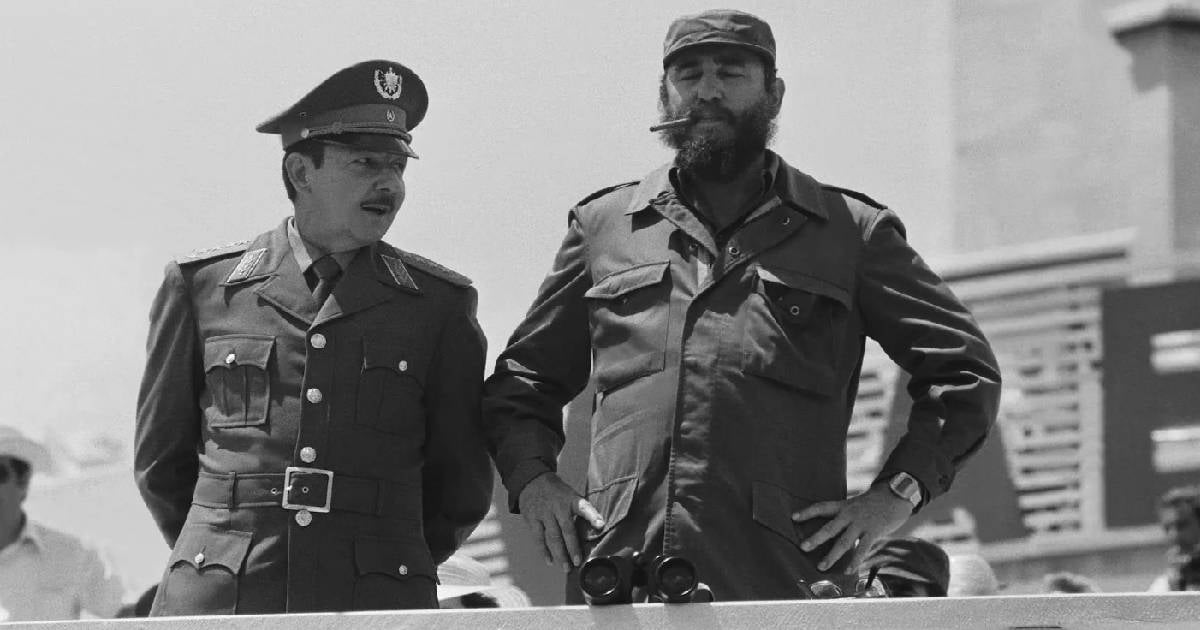In a revealing interview with Martí Noticias, Carlos Lehder, a founding member of the notorious Medellín Cartel, claimed that the Cuban regime under Fidel and Raúl Castro played a pivotal role in cocaine trafficking to the United States during the 1980s. According to Lehder, who had previously disclosed information on this matter in January 2024, the island was a crucial point in the drug trade route, with the consent of the Cuban military leadership.
Lehder, speaking from Colombia, where he resides after serving over 33 years for drug trafficking in the U.S., stated, "I was invited by the Castro dictatorship to establish a cocaine trafficking route to the United States from Cuba." Although Lehder eventually withdrew from the agreement, he asserts that his partners, Pablo Escobar and Gustavo Gaviria, took over the operation, sending "hundreds of tons of cocaine" with the support of the Cuban government.
Enrique García, a former Cuban intelligence officer who defected in 1989, reinforced these claims by stating, "No operation could take place in Cuba without Fidel Castro's authorization." During a 1991 trial against former Panamanian dictator Manuel Antonio Noriega, Lehder testified under oath that he had donated a plane to Raúl Castro as part of the agreement with the Cuban regime to facilitate drug trafficking through their territory.
The Cuban Connection
In his memoirs and the recent interview, Lehder describes how, upon arriving in Cuba by invitation from Colonel Antonio de la Guardia, he was hosted with all expenses covered by the government. During this initial business visit, Lehder claims that Cuban officials made their intentions clear: "We need all the dollars we can get." He was granted use of Cayo Largo as a logistical hub and was required to make cash payments to the Cuban state.
Shortly thereafter, Lehder requested a meeting with Raúl Castro. In a brief and cryptic encounter, Lehder says, the then Minister of the Armed Forces symbolically endorsed the collaboration agreement. The operation continued for years until 1989, when the Cuban regime executed four high-ranking officers accused of drug trafficking: General Arnaldo Ochoa, Colonel Antonio de la Guardia, Captain Jorge Martínez Valdés, and Major Amado Padrón Trujillo.
Crackdown and Cover-Up
The 1989 trials, known as Causa No. 1, were interpreted by many as an attempt to cover up the regime's drug trafficking connections and to prevent international legal repercussions. García, a former officer of the DGI, remarked, "Fidel decided to stage that spectacle when he learned of a federal investigation against him in the United States."
In response to Lehder's revelations, the U.S. State Department told Martí Noticias, "It is no secret that the corrupt and communist regime of Cuba has longstanding ties with drug traffickers." The U.S. administration also cited the collaboration between the Castros and Manuel Noriega as another example of covert narco-political operations in the region.
Carlos Lehder returned to Colombia in March 2025 after spending time in Germany, where he is also a citizen. He was briefly detained upon arrival but released shortly after due to the statute of limitations on his legal cases. Now aged 75, Lehder portrays himself as a reformed man, yet he continues to actively criticize the Cuban regime.
"Any effort to expose the Castro-communist dictatorship is highly recommended and deserved," Lehder declared. His statements reignite one of the darkest chapters in the history of drug trafficking and Latin American politics, directly implicating the highest powers of the Cuban Revolution in the lucrative and bloody drug trade.
Key Questions on Cuba's Role in Drug Trafficking
What role did Cuba play in the drug trafficking during the 1980s?
Cuba, under Fidel and Raúl Castro, served as a crucial hub for cocaine trafficking to the United States, allegedly supporting operations with the consent of high-ranking military officials.
Who were the key figures in the alleged drug trafficking operations involving Cuba?
Key figures included Carlos Lehder, Pablo Escobar, Gustavo Gaviria, and Cuban officials such as Colonel Antonio de la Guardia and Raúl Castro.
How did the Cuban government allegedly benefit from these operations?
The Cuban government reportedly benefited financially, receiving cash payments and potentially using the operations to strengthen their political and economic position.
